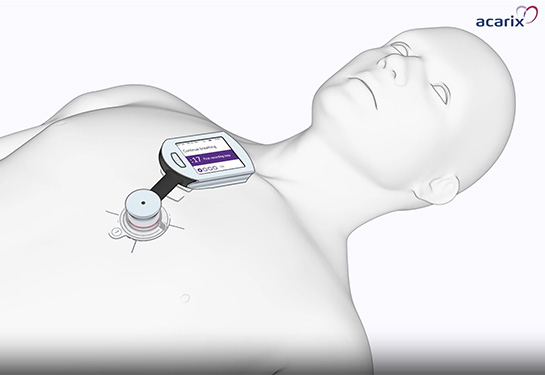Cardiac Anesthesia
We support you and your loved ones throughout complex heart, lung and blood vessel surgeries and procedures. We provide the safest care for your loved ones undergoing complex heart procedures.
Medically reviewed by Aubrey Yao, M.D. on Nov. 17, 2023.
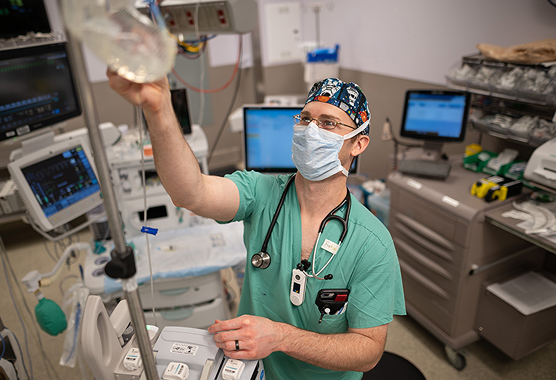
Specialists in Care for Patients Undergoing Cardiac Procedures
At UC Davis Health Anesthesiology and Pain Medicine, we offer the best care for patients having heart (cardiac), lung (thoracic) or blood vessel (vascular) procedures. We also provide support for patients with cardiac or thoracic conditions undergoing non-cardiac surgery.
Our experienced anesthesiologists are specialists in the care of patients undergoing heart, lung and vascular surgery. We offer the highest level of cardiac care to optimize your treatment and decrease recovery time. Our cardiac anesthesiologists provide individually tailored care to ensure the patient’s comfort and safety during procedures.
Types of Anesthesia
At UC Davis Health, we offer the highest level of care throughout your surgery or procedure. We closely monitor your heart at all times to ensure your blood pressure, heart function and heart rate remain stable.
General Anesthesia
General anesthesia is used for many types of cardiac, thoracic and vascular surgeries. Medication is injected through an IV to put you into a sleep-like state and to prevent you from feeling pain during the surgery. To monitor your blood pressure, we insert a tube (catheter) into the artery in your wrist and may place a catheter in your neck (central venous line). We also insert a tube into your throat to help you breathe. We may also place a transesophageal echocardiogram (TEE) into your esophagus to better view your heart valves and heart function.
Local Anesthesia With IV Sedation
For diagnostic and interventional heart procedures, such as cardiac catheterization and TEE, we may use local anesthesia with IV sedation. We administer sedating and pain-relieving medications through an IV to help you relax. Then, we inject medication (local anesthetic) to numb the area where a needle will puncture your skin. You are sedated but conscious, and you do not feel pain where the treatment is happening.
Regional Anesthesia
In addition to general anesthesia, we may use regional anesthesia for increased pain relief during or after cardiac, thoracic or vascular surgery. We can inject medication into the nerves connected to the surgical area before surgery. Alternatively, we may insert a catheter to deliver continuous pain medication during and after surgery.
Before you receive an anesthetic, your anesthesiologist will talk to you about what to expect, how to prepare and what the risks are. It’s important to follow their instructions before, during and after anesthesia to lead to the best results.
-
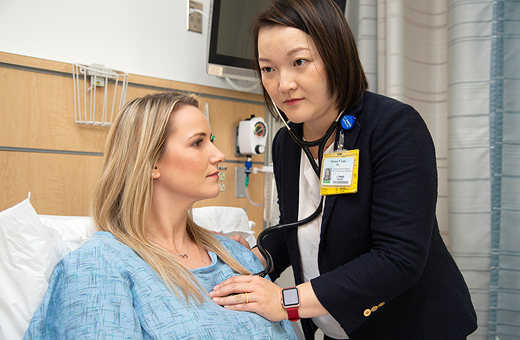
Before Anesthesia
Your stomach should be empty before the procedure or surgery. Our providers will let you know when you should stop eating and drinking. You will usually be allowed clear liquids up until 2 hours before. We will also let you know whether you need to stop taking any medications on the day of the surgery.
-
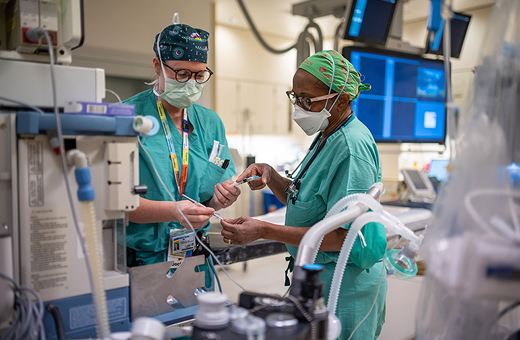
During Cardiac Anesthesia
We give your anesthesia through an injection, catheter or IV. We may also give you a medication to relax (sedative). During the procedure, we carefully monitor your heart function, including your heart rate and rhythm, as well as your blood pressure and oxygen levels.
-

After Cardiac Anesthesia
If you’ve had a major procedure, you will recover in the Intensive Care Unit (ICU). We will continue to give you pain medication and sedatives through an IV while you recover. Once your blood pressure and breathing stabilize, we will allow you to wake up from the anesthesia. You may recover for several more days in the hospital. Your anesthesiologist and provider will give you more specific recovery instructions. When you are ready to go home, you will need a family member or friend to drive you.
Home Care After Cardiac Anesthesia
Your recovery time from cardiac anesthesia will depend on the type of anesthesia, the procedure or surgery and your overall health. Most major procedures that use general anesthesia will have a longer recovery time, while interventional or diagnostic procedures that use local anesthesia will have a shorter recovery.
Avoid Heavy Lifting and Strenuous Activity
Follow your provider’s instructions about lifting and other activities. You may often need to refrain from lifting heavy objects for 6 to 8 weeks after a cardiac surgery or procedure.
Continue Medications
Keep taking any heart or high blood pressure medications you’ve been prescribed. We can help if you need suggestions for medications to help with pain reduction as you get better.
Stop Driving
Depending on your procedure, you may need to avoid driving for a certain amount of time. We may recommend not driving for at least four weeks to aid in your recovery.
When to Contact Your Provider
Contact your provider as soon as possible if you notice any symptoms such as:
- Itching, swelling, pus, bleeding or redness at the procedure site
- Nausea and vomiting
- Rapid heart rate
- Signs of infection, such as chills or fever
- Slurred speech
- Trouble breathing
- Worsening chest pain

Ranked among the nation’s best hospitals
A U.S. News & World Report best hospital in cancer, cardiology, heart & vascular surgery, diabetes & endocrinology, ENT, geriatrics, neurology & neurosurgery, obstetrics & gynecology, and pulmonology & lung surgery.

Ranked among the nation’s best children’s hospitals
A U.S. News & World Report best children’s hospital in diabetes & endocrinology, nephrology, and orthopedics*. (*Together with Shriners Children’s)

Ranked Sacramento’s #1 hospital
Ranked Sacramento’s #1 hospital by U.S. News, and high-performing in COPD, colon cancer surgery, diabetes, heart attack, heart failure, hip fracture, hip replacement, kidney failure, leukemia, lymphoma & myeloma, lung cancer surgery, ovarian cancer surgery, pneumonia, prostate cancer surgery, stroke, TAVR, uterine cancer surgery, gastroenterology & GI surgery, and orthopedics.

The nation’s highest nursing honor
UC Davis Medical Center has received Magnet® recognition, the nation’s highest honor for nursing excellence.
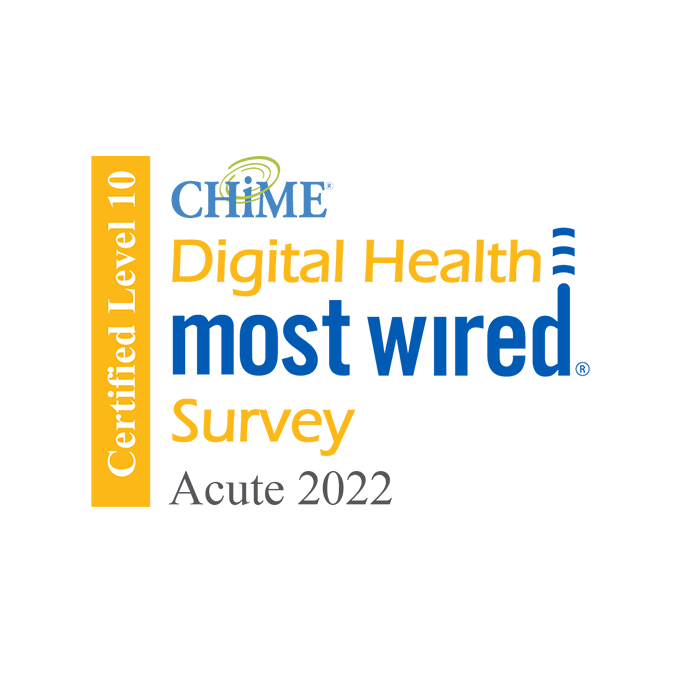
“Most Wired” for acute care
UC Davis Health has been recognized as a level 10 out of 10 in the Digital Health “Most Wired” program from the College of Healthcare Information Management Executives (CHIME). The honor recognizes excellence in using technology to improve the delivery of care.
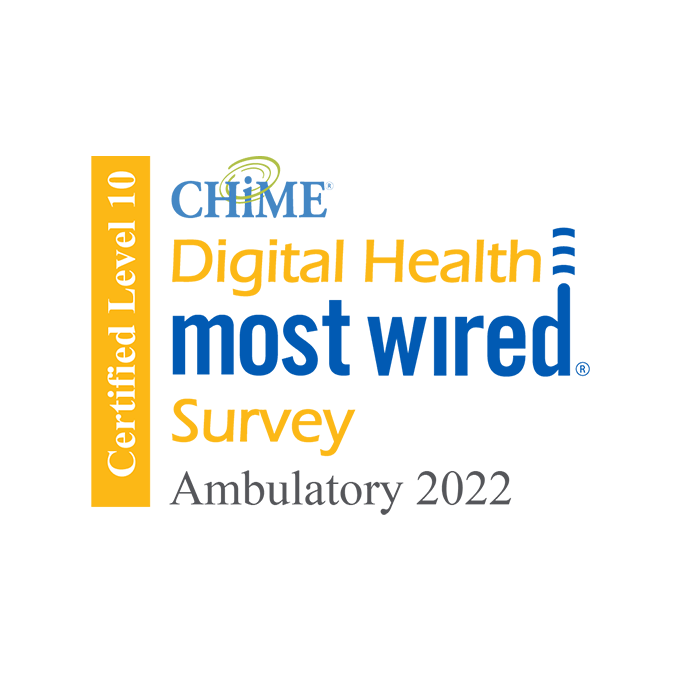
“Most Wired” for ambulatory care
UC Davis Health has been recognized as a level 10 out of 10 in the Digital Health “Most Wired” program from the College of Healthcare Information Management Executives (CHIME). The honor recognizes excellence in using technology to improve the delivery of care.

World-class cancer care
One of ~56 U.S. cancer centers designated “comprehensive” by the National Cancer Institute.

A leader in health care equality
For the 11th consecutive year, UC Davis Medical Center has been recognized as a “Leader in LGBTQ+ Healthcare Equality.”

